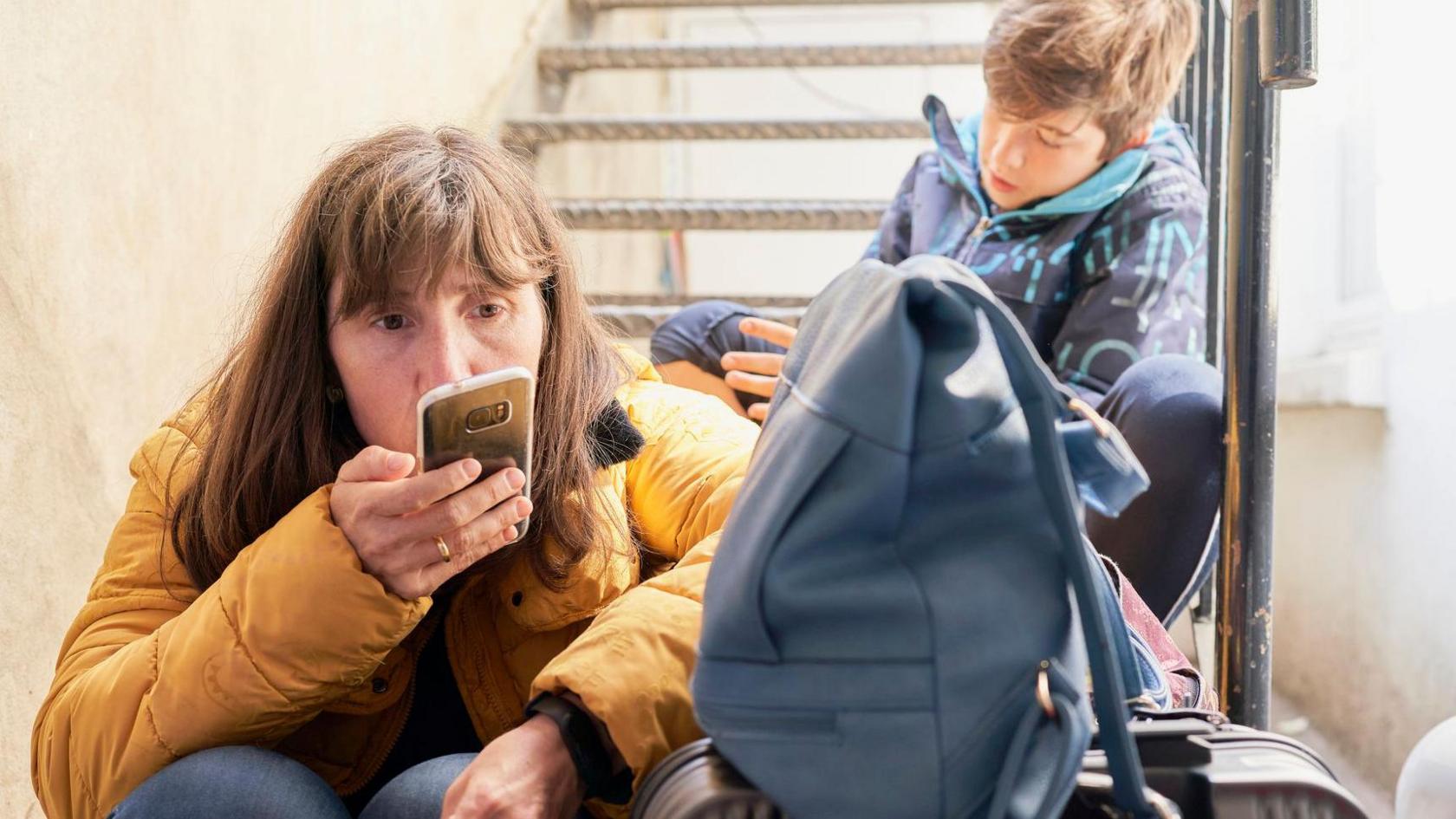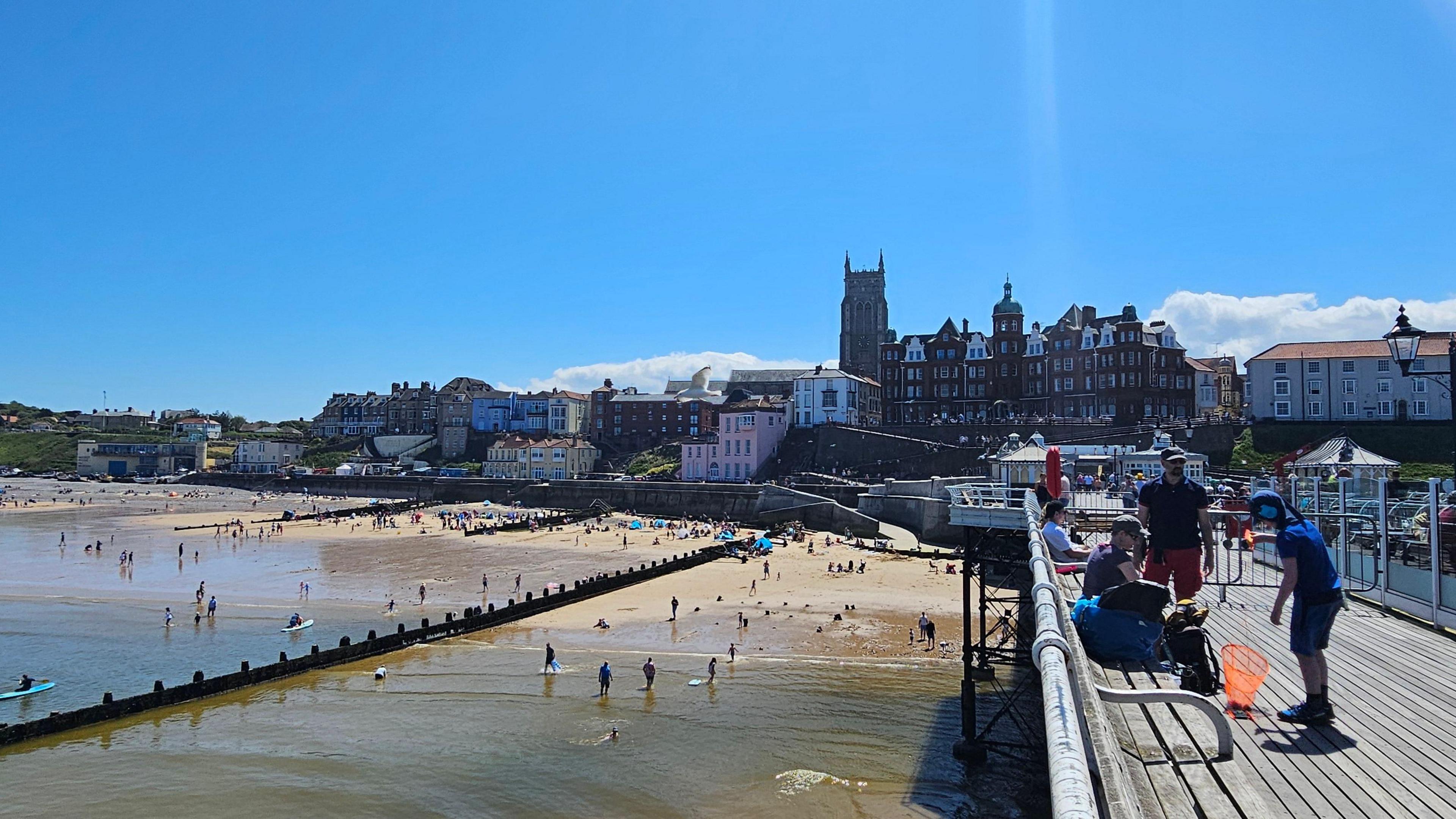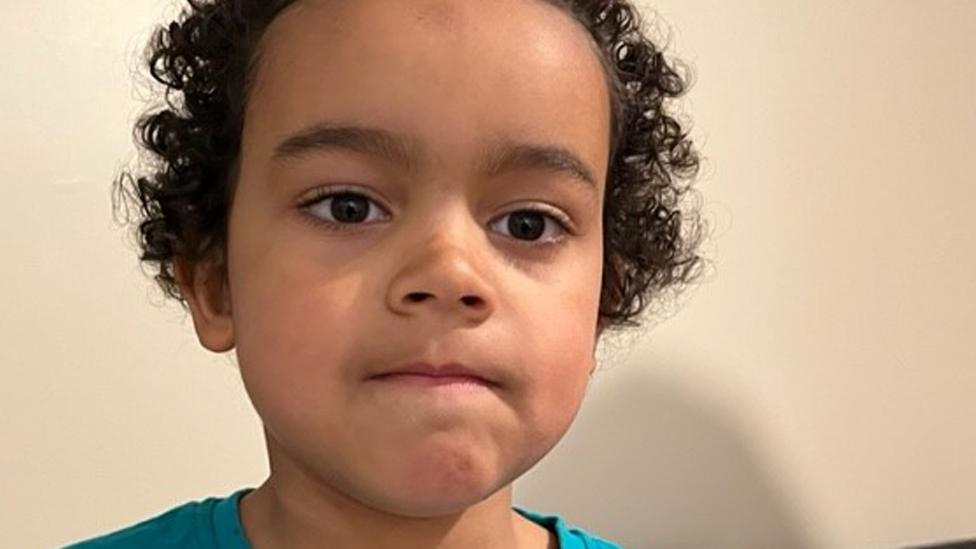Record number of 'homeless' children in England

- Published
A record high of more than 150,000 children are living in temporary accommodation in England, according to the latest official figures.
The situation was branded a "national scandal" by the new Deputy Prime Minister and Housing Secretary, Angela Rayner, who warned the country faces an "acute housing crisis".
At the end of March, there were 151,630 children living in temporary accommodation - a form of homelessness that includes people living in hostels or bed and breakfasts (B&Bs).
The figures, released by the the Ministry of Housing, Communities and Local Government (MHCLG) on Thursday, have been described as "astounding" by human rights organisation Amnesty International UK.
By law, B&Bs are only meant to be used to house families in an emergency for a maximum period of six weeks.
But figures show local authorities have placed thousands of households with children in B&B accommodation for longer periods of time.
The number of children living in temporary accommodation stands at the highest level since the measure began in 2004, with figures showing an increase of 15 per cent compared to the end of March last year.
Children are currently "spending months if not years living out of suitcases, crammed into grim bedsits and B&Bs, and unable to put down any roots," said Polly Neate, the chief executive of housing charity Shelter, external.
Ms Neate called for the government to "invest in genuinely affordable homes".
People living in temporary accommodation experience a different form of homelessness to rough sleepers, who sleep in the open air, such as in the street, or in places not designed for habitation, such as in stairwells, car parks and sheds.
Campaigners have called for the government to act more quickly to tackle the situation.
The number of children living in temporary accommodation now exceeds the populations of some major UK towns, according to Dave Robinson, the assistant director of operations at housing provider Riverside.
"The latest increase means we now have more homeless children living in temporary accommodation (151,630) in England than we have people living in towns and cities such as Ipswich (151,565) Blackpool (149,070) and York (141,685)," he said.
The increasing need for temporary accommodation means councils will be forced to cut vital services, including work to prevent homelessness, charities and councillors said.
“High use of temporary accommodation is the result of national policy failure which forces councils to expensively deal with the consequences of homelessness rather than prevent it in the first place,” Cllr Hannah Dalton, District Councils’ Network housing spokesperson, said.
Matt Downie, chief executive at the charity Crisis, said councils are "between a rock and a hard place".
“Our housing and homelessness system are broken, and councils are paying a hefty price for years of inaction."
Deputy Prime Minister and Housing Secretary, Angela Rayner, said: "We are facing the most acute housing crisis in living memory and homelessness remains at record levels.
"This is nothing short of a national scandal".
Ms Rayner said the government was taking "urgent action" to resolve the situation, highlighting plans to boost housebuilding and abolish Section 21 'no fault' evictions.
The Local Government Association (LGA), which represents councils, said local authorities need "the powers and resources" to tackle the "national shortage of affordable housing".
Related topics
- Published1 August 2024

- Published11 March 2023
